WhatsApp security
Updated: July 31, 2023
WhatsApp places a strong emphasis on security to ensure the privacy and protection of user communications. The platform uses end-to-end encryption, a robust security measure that ensures only the sender and recipient of a message can read its contents. This means that even WhatsApp itself does not have access to the messages exchanged between users. Additionally, WhatsApp employs security protocols to protect against unauthorized access and ensures that calls and messages are secure during transmission. The platform also regularly updates its security features to address potential vulnerabilities and collaborates with security researchers to identify and fix any potential issues. With its commitment to user privacy and data protection, WhatsApp strives to provide a secure and trustworthy messaging environment for its billions of users worldwide.
See also: Top 10 Antivirus Software
See also: Top 10 Antivirus Software
2019. WhatsApp adds new group messaging privacy settings
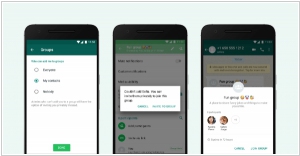
WhatsApp has introduced a new privacy feature that not only promotes common sense but also enhances the platform's ability to curb the spread of harmful content. Commencing from Wednesday, WhatsApp users will have the ability to specify who can add them to groups and whether they wish to accept or decline invitations sent via direct messages (DMs). Within WhatsApp's settings, users now have the option to determine whether "Everyone," "My Contacts," or "Nobody" can automatically include them in groups. To access these settings, users can navigate to Account > Privacy > Groups. Additionally, users have the choice to accept or reject these invitations, with an expiration period of 72 hours.
2018. WhatsApp launched encrypted group video calls
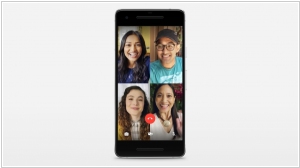
WhatsApp introduced video calling in 2016, initially limited to two participants. However, in a recent update, the app has expanded its video calling support to accommodate a total of four participants. While this increase may appear modest when compared to other services, such as Facebook Messenger allowing up to 50 participants or Skype supporting 25 participants, it presents unique challenges for WhatsApp. The app prioritizes end-to-end encryption for all messages, including video calls, by default. Additionally, WhatsApp must ensure that new features are optimized for users with slower internet connections and older devices. Balancing these factors while maintaining the app's security and performance is crucial for WhatsApp's video calling capabilities.
2017. WhatsApp enabled two-factor authentication for everyone
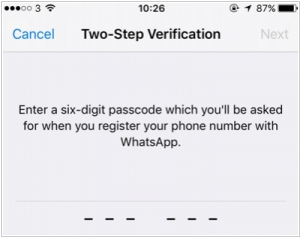
WhatsApp has introduced the option of two-factor verification for all of its extensive user base, exceeding one billion users. This security feature involves utilizing a passcode to authenticate your phone number, significantly reducing the chances of unauthorized access to a WhatsApp account. In response to concerns about user data sharing with the Facebook family of companies, WhatsApp assures users that providing an email address enables the ability to disable two-step verification in case the passcode is forgotten. It's important to note that two-step verification remains an optional feature. To activate it, ensure that you have the latest version of the WhatsApp application installed, access the Settings menu, navigate to Account, select Two-Step Verification, and enable the feature from there.
2016. Viber adds end-to-end encryption and hidden chats
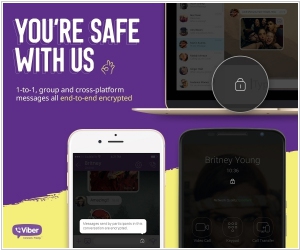
Following in the footsteps of WhatsApp, Viber, another popular messaging app, has introduced end-to-end encryption for all messages and calls on its platform, including group chats (supporting up to 200 people). Additionally, Viber now offers a feature to 'hide' chats on your account, complementing its existing expanded deleting function. These new privacy features are available across Android, iOS, PCs, and Mac desktops, and can be activated by updating to the latest app version (6.0) and reauthenticating the app via QR Code. Viber's encryption provides different levels of security, visually represented by a color-coded lock displayed on the right side of the screen.
2016. WhatsApp now supports full end-to-end encryption
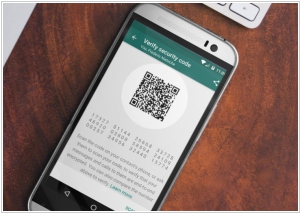
Facebook-owned messaging platform, WhatsApp, has successfully implemented robust end-to-end encryption across all its mobile applications. This encryption ensures that the content of communications remains secure and is not stored in plain text on WhatsApp's servers. Additionally, the company lacks the ability to decrypt users' messages, as it does not possess the encryption keys. Consequently, even if authorities request access through a warrant, WhatsApp cannot be compelled to provide messaging data. By collaborating with Open Whisper Systems, WhatsApp has integrated the highly regarded Signal Protocol for its end-to-end encryption. It is important to note that while default end-to-end encryption represents a significant security achievement for WhatsApp, not all communications sent through the app are automatically end-to-end encrypted. This functionality relies on all users updating to the latest software version.

